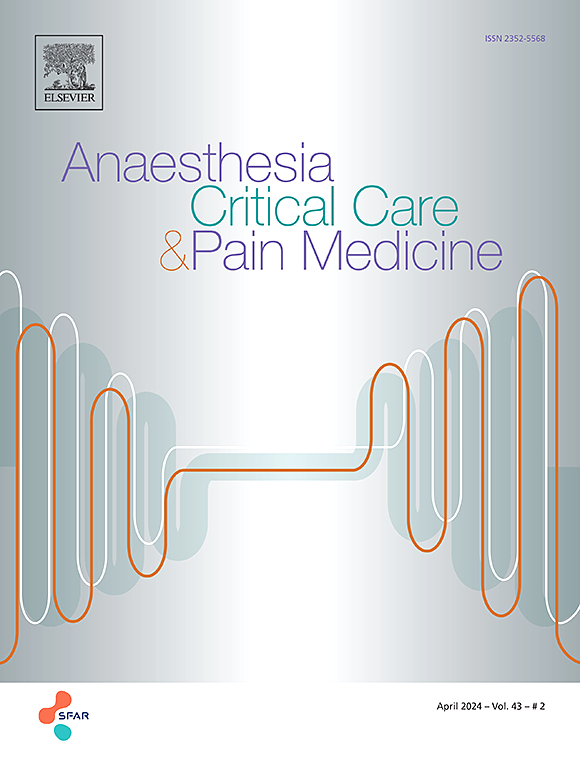Effects of dexmedetomidine versus propofol on outcomes in critically ill patients with different sedation depths: a propensity score-weighted cohort study
IF 3.7
3区 医学
Q1 ANESTHESIOLOGY
引用次数: 0
Abstract
Objective
We explored the effects of dexmedetomidine (DEX) versus propofol on outcomes in critically ill patients and to assess whether these effects are dissimilar under different sedation depths.
Methods
A stabilized inverse probability of treatment weighting cohort study was conducted using data from the Medical Information Mart for Intensive Care IV database from 2008 to 2019. Adult intensive care unit (ICU) patients who were administered DEX or propofol as the primary sedative were identified. Various statistical methods were used to evaluate the effects of DEX versus propofol on outcomes.
Results
Data on 107 and 2318 patients in DEX and propofol groups, respectively, were analyzed. Compared to the propofol group, the DEX group exhibited longer ventilator-free days on day 28 and a shorter ICU stay. Conversely, it showed null associations of DEX with the risk of 90-day ICU mortality, the odds of persistent organ dysfunction on day 14 and acute kidney injury, and the duration of vasopressor-free days on day 28. Subgroup analyses revealed that DEX positively impacted persistent organ dysfunction on day 14, ventilator-free days on day 28, and ICU stay in the subgroup with a Richmond Agitation Sedation Scale (RASS) score of ≥−2. However, DEX negatively impacted 90-day ICU mortality, persistent organ dysfunction on day 14, and ventilator-free days on day 28 in the subgroup with a RASS score of <−2.
Conclusion
Our results indicated that, compared with propofol, DEX had beneficial and adverse impacts on certain ICU outcomes in critically ill patients, and these impacts appeared to depend on sedation depths.
右美托咪定与异丙酚对不同镇静深度重症患者预后的影响:倾向得分加权队列研究。
目的我们探讨了右美托咪定(DEX)与丙泊酚对重症患者预后的影响,并评估这些影响在不同镇静深度下是否不同。方法利用2008年至2019年重症监护医学信息市场IV数据库的数据,开展了一项稳定的逆概率治疗加权队列研究。研究确定了使用DEX或丙泊酚作为主要镇静剂的成人重症监护病房(ICU)患者。结果 分析了DEX组和丙泊酚组分别为107例和2318例患者的数据。与异丙酚组相比,DEX 组第 28 天无呼吸机天数更长,重症监护室住院时间更短。相反,DEX与重症监护室90天死亡风险、第14天持续器官功能障碍和急性肾损伤的几率以及第28天无呼吸机天数的持续时间呈负相关。亚组分析显示,在里士满躁动镇静量表(RASS)评分≥-2的亚组中,DEX对第14天持续器官功能障碍、第28天无呼吸机天数和ICU住院时间有积极影响。结论我们的研究结果表明,与异丙酚相比,DEX对重症患者的某些ICU预后既有有利影响,也有不利影响,这些影响似乎取决于镇静深度。
本文章由计算机程序翻译,如有差异,请以英文原文为准。
求助全文
约1分钟内获得全文
求助全文
来源期刊

Anaesthesia Critical Care & Pain Medicine
ANESTHESIOLOGY-
CiteScore
6.70
自引率
5.50%
发文量
150
审稿时长
18 days
期刊介绍:
Anaesthesia, Critical Care & Pain Medicine (formerly Annales Françaises d''Anesthésie et de Réanimation) publishes in English the highest quality original material, both scientific and clinical, on all aspects of anaesthesia, critical care & pain medicine.
 求助内容:
求助内容: 应助结果提醒方式:
应助结果提醒方式:


